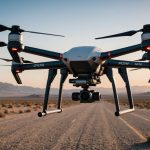Will AI Replace Human Workers in the Tech Industry?
The rise of artificial intelligence (AI) and machine learning has sparked a heated debate about the future of work, particularly in the tech industry. As AI technologies become more sophisticated, the question on everyone’s mind is: will AI replace human workers? To answer this, we need to delve into the current state of AI, its capabilities, and its impact on the workforce.
The Current State of AI in the Tech Industry
AI has already made significant inroads in the tech industry, transforming various aspects of business operations. Here are some key areas where AI is being widely used:
Automation of Routine Tasks
AI is excellent at automating repetitive and routine tasks, such as data entry, customer service chatbots, and software testing. For instance, companies like IBM and Microsoft use AI-powered tools to automate their customer service operations, reducing the need for human intervention in simple queries.
Data Analysis and Decision Making
AI algorithms can process vast amounts of data in real time, providing insights that human analysts might miss. This is particularly useful in fields like finance, where AI can predict market trends and help in decision making. For example, Goldman Sachs uses AI to analyze market data and make trading decisions.
Machine Learning and Innovation
Machine learning, a subset of AI, enables systems to learn from data and improve over time. This has led to innovations in areas such as natural language processing, image recognition, and predictive analytics. Companies like Google and Amazon are at the forefront of these innovations, using machine learning to enhance their products and services.
The Impact on Human Workers
While AI is undoubtedly changing the landscape of the tech industry, its impact on human workers is more complex than a simple replacement narrative.
Jobs Will Change, Not Disappear
Many experts agree that AI will not replace human workers entirely but will instead change the nature of their jobs. Here are some ways this might happen:
- Enhanced Productivity: AI can automate mundane tasks, allowing human workers to focus on more creative and strategic work. For example, AI can handle routine coding tasks, freeing up developers to work on more complex and innovative projects.
- New Job Creation: The rise of AI is also creating new job opportunities that did not exist before. Roles such as AI engineer, data scientist, and machine learning specialist are becoming increasingly important.
- Upskilling and Reskilling: As AI takes over certain tasks, there will be a greater need for workers to upskill and reskill. Companies are already investing in training programs to help employees adapt to the changing job market.
Human Expertise Remains Essential
Despite the advancements in AI, human expertise and judgment remain crucial in many areas.
- Complex Decision Making: While AI can analyze data, human workers are still needed for complex decision making that requires empathy, creativity, and ethical judgment. For instance, in healthcare, AI can help diagnose diseases, but human doctors are necessary for making treatment decisions.
- Customer Service: Although AI-powered chatbots are common, human customer service representatives are still needed to handle complex customer issues that require empathy and understanding.
- Innovation and Creativity: Human workers bring creativity and innovation to the table, which is something AI systems currently cannot replicate. Companies like Apple and Tesla rely heavily on human innovation to stay ahead in the market.
Use Cases and Examples
Here are some concrete examples of how AI is being used in the tech industry without replacing human workers:
Google’s AI-Powered Tools
Google uses AI to enhance its search engine and other products. For example, Google’s AI-powered algorithm helps in ranking search results, but human evaluators are still needed to ensure the quality and relevance of the results.
Amazon’s Customer Service
Amazon uses AI-powered chatbots to handle customer inquiries, but for more complex issues, human customer service representatives take over. This hybrid approach ensures that customers receive both efficient and empathetic service.
Microsoft’s AI for Accessibility
Microsoft is using AI to develop tools that enhance accessibility for people with disabilities. For instance, their AI-powered speech recognition technology helps people with speech impairments communicate more effectively. Human workers are involved in the development and testing of these tools to ensure they meet the needs of users.
Table: Comparative Analysis of AI and Human Workers
| Task | AI Capabilities | Human Capabilities |
|---|---|---|
| Data Analysis | Can process large amounts of data quickly and accurately. | Can interpret data in context, identify anomalies, and make strategic decisions. |
| Customer Service | Can handle routine inquiries and provide basic support. | Can empathize with customers, handle complex issues, and provide personalized support. |
| Software Development | Can automate routine coding tasks and debug code. | Can design software architecture, write complex code, and innovate new solutions. |
| Decision Making | Can analyze data and provide recommendations. | Can make ethical and strategic decisions that require human judgment and empathy. |
| Innovation | Can generate ideas based on data patterns. | Can create entirely new concepts, products, and services through creativity and innovation. |
Practical Insights and Actionable Advice
For both business leaders and employees, here are some practical insights and actionable advice:
For Business Leaders
- Invest in Training: Provide training programs that help employees upskill and reskill in areas where AI is augmenting human capabilities.
- Hybrid Work Models: Implement hybrid work models that combine the strengths of AI with human expertise.
- Ethical Considerations: Ensure that AI systems are developed and used ethically, considering the impact on human workers and society.
For Employees
- Stay Adaptable: Be open to learning new skills and adapting to new technologies.
- Focus on Human Skills: Develop skills that are uniquely human, such as creativity, empathy, and complex decision making.
- Collaborate with AI: Learn to work alongside AI tools to enhance productivity and efficiency.
Quotes from Industry Experts
- “AI is not here to replace human workers but to augment their capabilities. It’s about enhancing productivity and freeing up humans to do more creative and strategic work.” – Sundar Pichai, CEO of Google
- “The future of work is not about humans versus machines; it’s about humans and machines working together to achieve greater things.” – Satya Nadella, CEO of Microsoft
- “AI will create new job opportunities that we cannot even imagine today. The key is to be prepared and adaptable.” – Jeff Bezos, Founder of Amazon
The question of whether AI will replace human workers in the tech industry is not a simple yes or no. AI is certainly changing the nature of work, but it is also creating new opportunities and enhancing existing roles. By understanding the capabilities and limitations of AI, we can harness its potential to create a more efficient, innovative, and inclusive workforce.
In the end, the future of work is not about AI replacing human workers but about how humans and machines can collaborate to achieve greater things. As we move forward, it’s crucial to focus on developing the skills that are uniquely human and to ensure that AI is used in a way that complements and enhances human capabilities.






